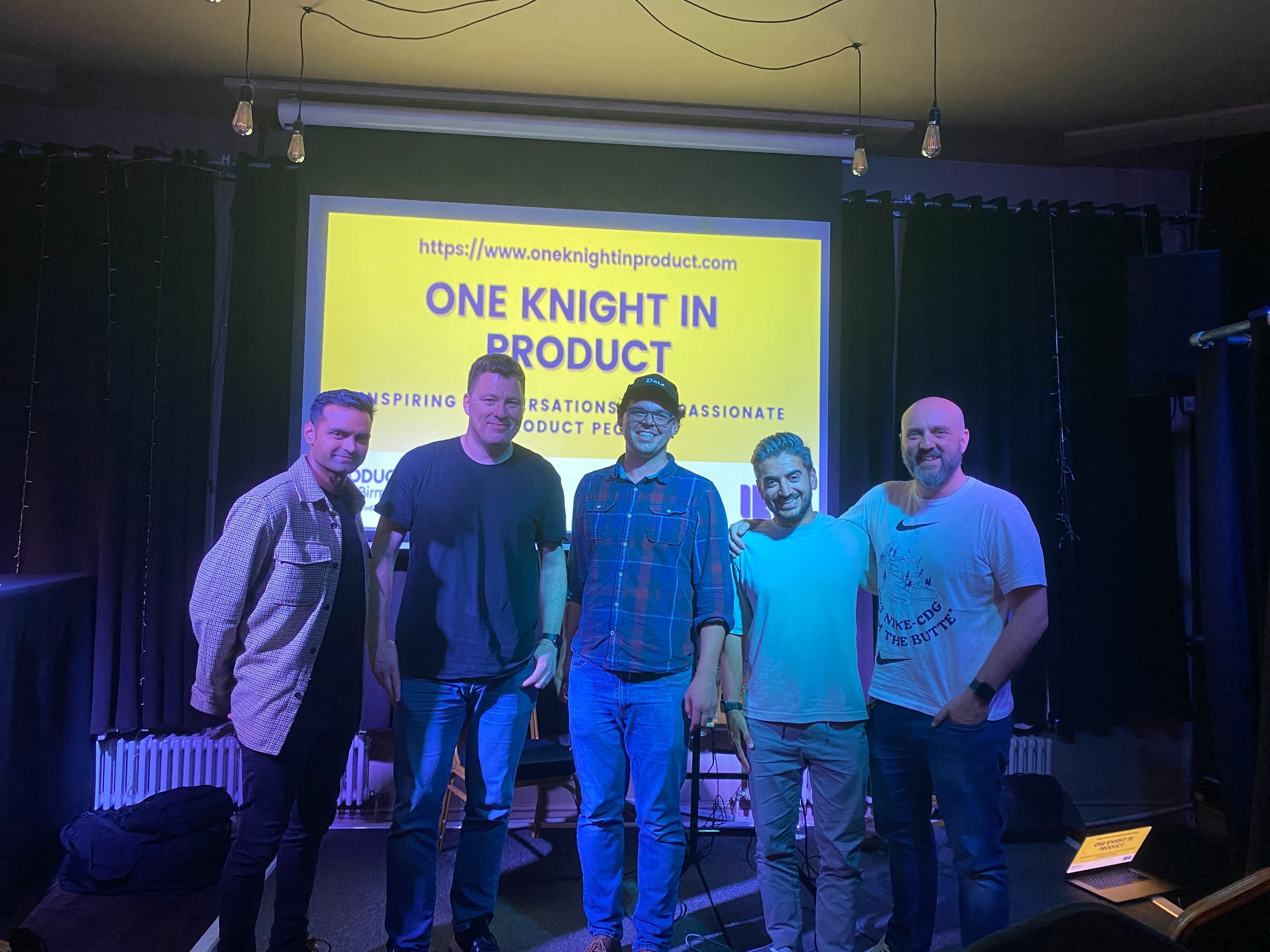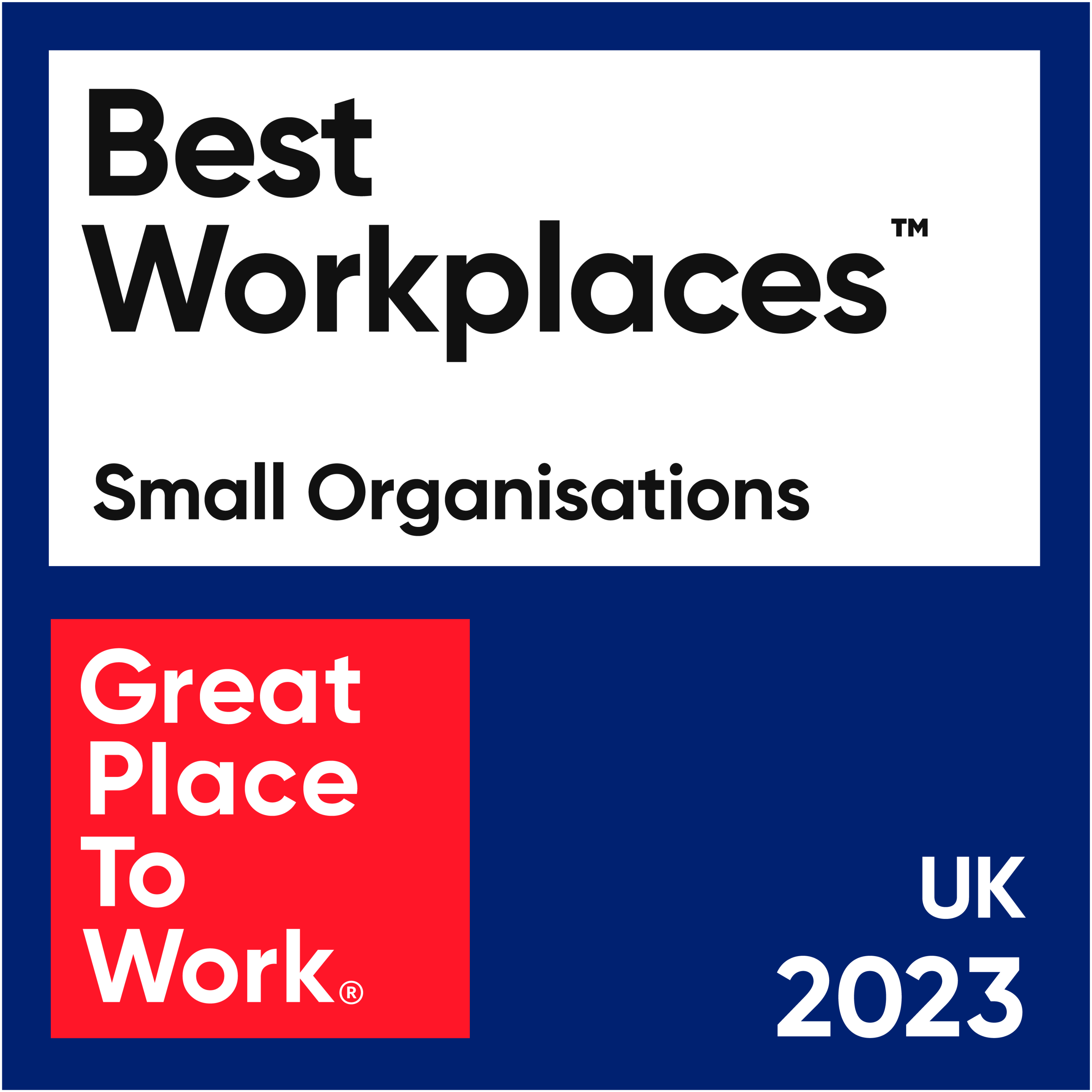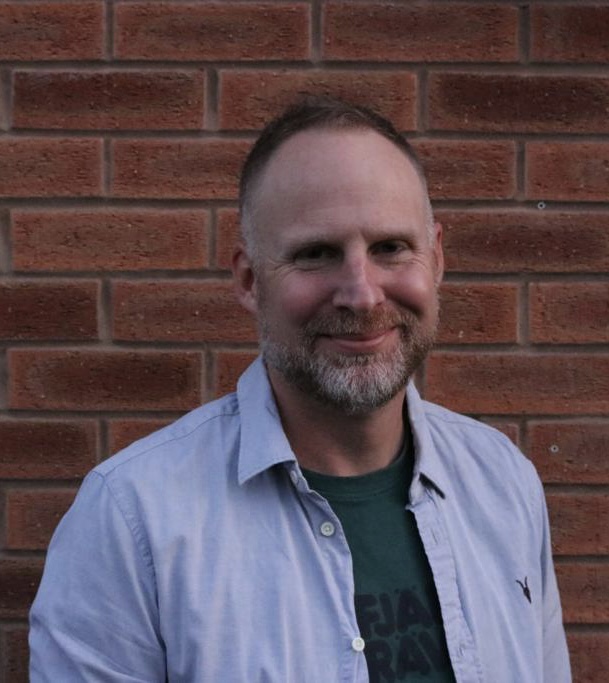Building the Body Coach app
This month, IRIS sponsored a pretty unique event here in Birmingham. In an evening that brought together product people, we joined Jason Knight at the live recording of his super popular One Knight in Product prodcast.
The guest of honour joining us for the live recording was Saagar Bains, whose latest product success was building the hugely successful The Body Coach app. During the evening he shared his experiences of working his way through different areas of product management, leading to his current role as a fractional product manager..

Proper product management?
Saagar talked about his early product management career working for Deloitte, where he always felt that he was missing the ‘why’ in his product builds.
He explained that for him, real, proper product management is rooted in understanding the context and reason for why you are doing something. Whilst there were true aspects of product management in his role at Deloitte, the experience for him was more a case of, ‘here is what we’re building, off you go,’ without being offered the whole picture.
He explained this approach might work for many, especially in the agency field, but in his experience, he needed to get to the bare bones of why a product was being made, and back that up with evidence, to truly create a product that delights users.
The Body Coach
Saagar recounted how he joined The Body Coach in 2020 as their first ever in-house product manager. The team at The Body Coach had already worked with an agency to launch an app off the back of the success of PE With Joe during the Coronavirus pandemic lockdowns.
The basis for the app had been the PDF diet and exercise programme, that Joe Wicks had been selling for years, which needed digitising. With a huge fanbase and loyal followers, the brand already had the benefit of user trust and a product fit for market.
But bringing in an in-house Product Manager was always going to be hard for a business where the CEO is the product.
Managing expectations
As the app had been built by an agency, Saagar found the same sort of issues he had run into working at Deloitte; it was built, but the developers hadn’t understood the ‘why’. Saagar found his expectation management skills being put to the test - a crucial trait for any product manager.
As a trusted brand, the app for The Body Coach had to be built right, first time.
Saagar spoke about how The Body Coach users had much higher expectations of this brand versus a startup releasing an app for the first time. Users expected more, better, and faster, and there had to be a minimum bar for the product otherwise they would be laughed out the room.
The app had been built well and was up and running operationally, but it had been built without tools, analytics, and thus data, to support further development.
Business decisions about the app were made based on user request fulfilment. Foundationally, things like analytics, push notifications, and emails were missing.
This led to a number of conversations to educate the founders, explaining that scaling their product would take time. No mean feat when your CEO has been used to the lightning-quick turnaround times of social media, where he built the brand.
Saagar explained that he wouldn’t be able to show quick wins and that customers wouldn’t see immediate changes, but by having, “a conversation around, ‘this is why it is going to do this, we don’t have to do this, we can work on these other [user requested] things, but we are going to miss out in the long run,” he was able to expectation set with the team.
Saagar discussed the importance of picking your battles as a product manager. If you don’t have evidence, and a CEO wants to implement a feature, you’ve got to know where your trade offs lie. If you’re not strong enough to push back and, similarly, know where to give in, knowing what will and won’t work, you’re not a true product manager.
Lessons learned from fractional
Leaving behind the success of his work on The Body Coach app, achieving 1 million downloads in 2022, across 175 countries (you can read more about the app project with this AWS case study), Saagar shared that he has now made the move to fractional product manager positions, which he says suits his lifestyle much better.
A fractional product manager is someone who works for multiple clients on a part-time basis. They typically have a niche area of expertise, and offer strategic guidance and advice to clients.
Whilst it’s offered freedom to Saagar, he says that selling yourself, and pitching your services to others is hard; “I am on four out of four rejections so far!”
With a saturated product manager market and the hunt for jobs more competitive than ever, he explains that you have to find ways to stand out. For him, it is about being hyper specific about the types of businesses he knows he can add value to.
Fractional working is not for the faint hearted. It is a steep learning curve, Saagar says; “They say for every one year in fractional working, you have to work three in industry.” You’ve got to be a chameleon, quickly understanding how a business works, and hopefully, delivering value. Before you know it, you’ve delivered the output you were hired for and moved on.
Saagar’s actionable advice for anyone who is trying to get into product management, or fractional work, is “you’ve got to upskill yourself really fast, demonstrate impact early, where you can, which isn’t easy, and use evidence to show what you’re doing is working.”
Watch back
Watch Saagar’s full chat with Jason Knight on LinkedIn.


built by: huzzah!


